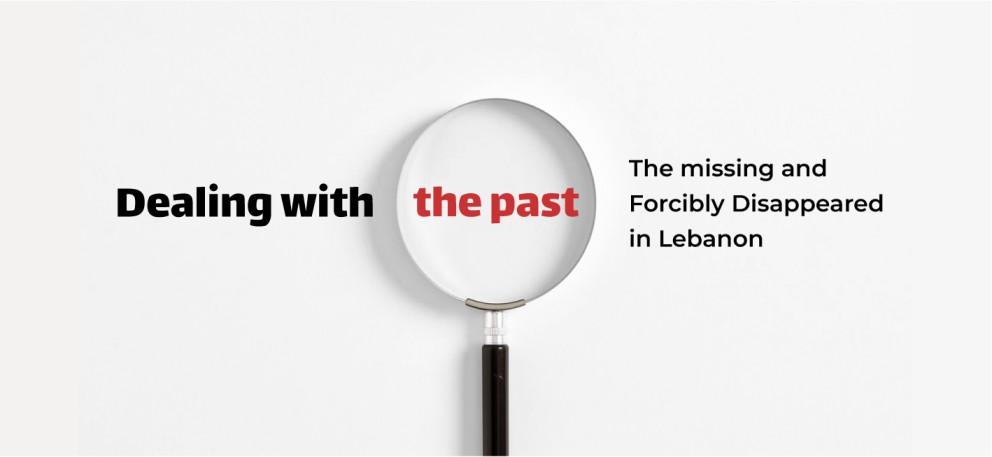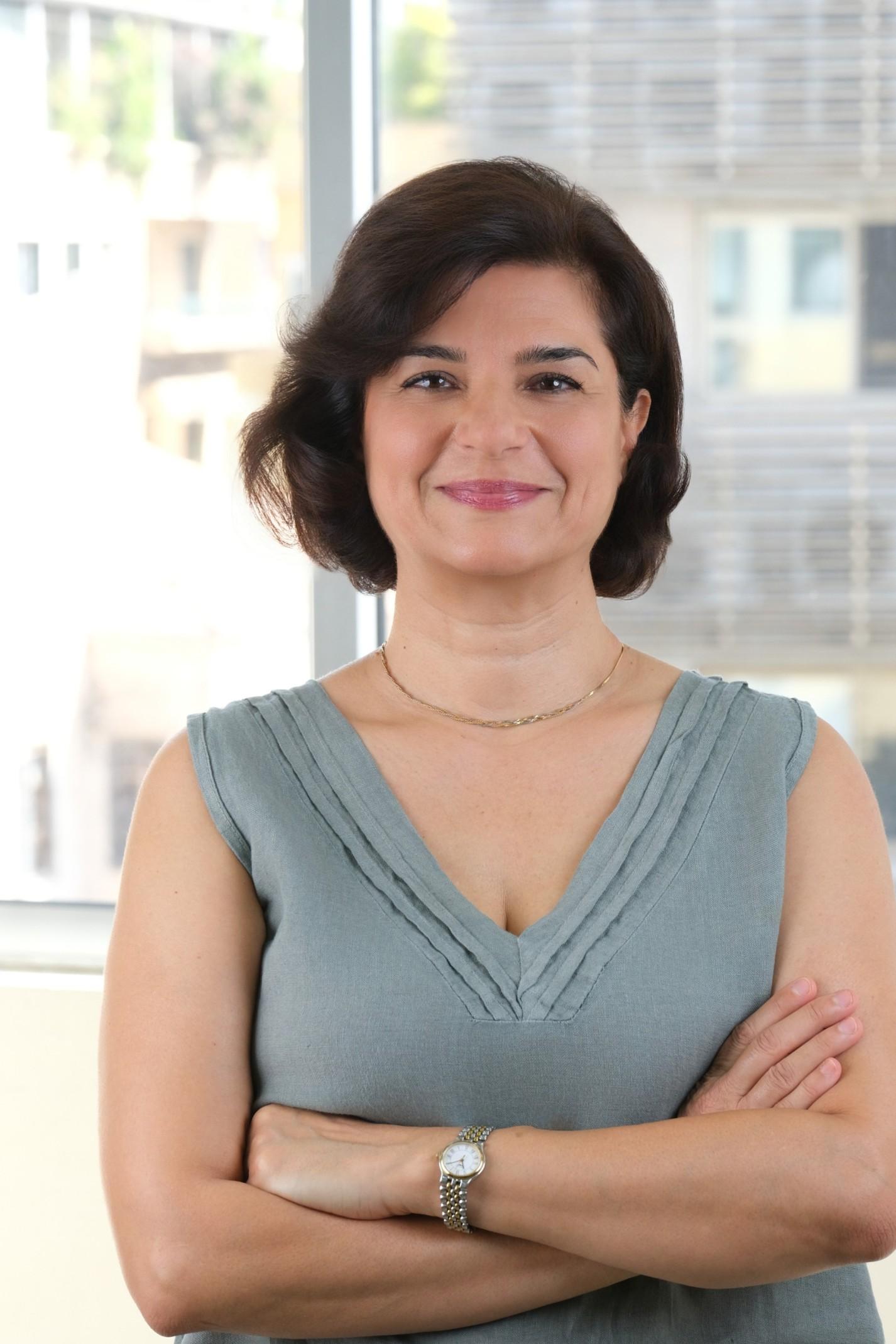
This project aims to fill the historical and cultural gap among younger generations in Lebanon and the region in the human rights field, and to highlight the issues related to the past by bringing them into serious public discussion.


The Human Rights Legal Clinic, with the support of the Office of the United Nations High Commissioner for Human Rights, in partnership with Nawaat for Legal Initiatives, and in collaboration with Dr. Carmen Abu Joudeh, a former member of the National Commission for the Missing and Forcibly Disappeared in Lebanon, developed a virtual class on “Dealing with the Past – the Missing and Forcibly Disappeared in Lebanon.”
This virtual class addresses issues related to dealing with the past in Lebanon from multiple aspects, including history, law, justice, social impact, and civil society engagement.
Introducing the Lebanese and Arab communities, especially the younger generations, to the issue of the missing and forcibly disappeared in Lebanon.
Emphasizing that enforced disappearance is a human rights violation, a crime against humanity, and a weapon of oppression and intimidation.
Introducing transitional justice as a post-conflict peace-building strategy, while underscoring the “right to know,” which was internationally enshrined in the United Nations’ 2006 International Convention for the Protection of All Persons from Enforced Disappearance (ICPPED).
Explaining the historical, political, and social framework surrounding the issue of the missing and forcibly disappeared, and the numerous attempts to uncover the fate of thousands of military personnel and civilians who went missing and disappeared since the outbreak of the war in 1975.
Highlighting the suffering of the families of the missing and forcibly disappeared and their quest to uncover the fate of their loved ones, as well as the role of Lebanese and international organizations in providing support.
Introducing Law No. 105 of 2018 and explaining the mandate of the National Commission for the Missing and Forcibly Disappeared in Lebanon and the challenges it faces.
Women were deeply affected by the Lebanese wars as mothers, wives, and daughters. They endured great suffering due to the violence and abductions that targeted men, which drove them to struggle to uncover the fate of their loved ones and to demand truth and justice.
Reviewing the journey of the Draft Law on the Missing and Forcibly Disappeared (105/2018) and the establishment of the National Commission for the Missing and Forcibly Disappeared (July 2020). It explains the Commission’s mandate, the challenges it faces, and the opportunities available.
Highlighting the struggle of the families of the missing and forcibly disappeared, during the war and in times of peace, to uncover the fate of their relatives and their ongoing suffering. This session also explores the role of local and international associations and organizations in addressing these issues through social and psychological support programs, documentation, recognition initiatives, and commemoration.
Reviewing and evaluating efforts and initiatives related to dealing with the past since the Lebanese war officially ended with the implementation of the Taif Agreement in 1990 and the adoption of the Amnesty Law in 1991. Additionally, reviewing official initiatives to address the issue of missing and forcibly disappeared persons, especially the investigative committees to determine the fate of the missing.
Presenting the historical, political, and social context of the issue of the missing and forcibly disappeared, namely the civil war and the international conflicts that began in April 1975. Further, explaining the different patterns and types of missing and forcibly disappeared persons in Lebanon and abroad.
Introducing transitional justice, its principles, and its mechanisms, which form the conceptual framework for these sessions on the missing and forcibly disappeared in Lebanon, with a focus on the principles of the right to know and the right to reparation.

Dr Carmen Hassoun Abou Jaoudé is a lecturer in politics and transitional justice at the Saint Joseph University of Beirut (USJ). She also taught at the American University of Beirut, the Holy Spirit University of Kaslik, the Academic University College for Non-Violence and Human Rights and the Lebanese University. She is an associate researcher at the Center for Modern Arab Studies (CEMAM-USJ). Her fields of research include Lebanon’s post-war memory, transitional justice and the issue of the disappeared persons. She worked between 2011 and 2015 with the International Center for Transitional Justice where she served as Head of its office in Lebanon and managed its multiyear project “Lebanon: Addressing the Legacy of Conflict in a Divided Society”, overviewed its reports and policy papers. She published peer reviewed articles and op-eds in Lebanese newspapers and co-edited a special issue “Lebanon: The Civil War in Retrospect” in Confluences Méditerranée, 2020, France.
She co-produced the feature documentary “The Soil and the Sea”, directed by Daniele Rugo (2023) in the framework of the British Academy (BA) awarded research project ‘Memories from the Margins. Bottom-up Practices for Dealing with Conflict-Produced Heritage in Lebanon and Syria”. The film explores the presence and erasure of potential burial sites from Lebanon's Civil War and aftermath.
She is currently working on women’s struggle for justice and change as part of the BA grant “Sustaining struggles and working towards transformative change – women activists and transitional justice in Lebanon and Sri Lanka”.
She was between 2016 and 2022 an active board member of “Act for the Disappeared” and was appointed between 2020 and 2025 member of the National Commission for the Missing and Forcibly Disappeared in Lebanon.
Seeds for Legal Initiatives (SEEDS) is a Beirut-based non-profit organization founded in 2016 that works across Lebanon to promote equal access to justice and legal protection. Through research, advocacy, and capacity building, SEEDS produces and shares knowledge on critical legal issues, supports policy reform, and strengthens civic participation. With gender equality at the core of its mission, SEEDS supports women’s leadership in decision-making and fosters partnerships that advance justice, inclusion, and equality for all.

The ULS Human Rights Legal Clinic is the first of its kind in Lebanon and possibly in the region. It was established at La Sagesse University in 2007. With more than 45 partnerships over the years, the Clinic primarily aims to foster a culture of defending public interest among law students. Furthermore, it serves citizens by spreading awareness and educating the youth about human rights issues and offering advice and direct services to those exposed to flagrant violations. It also provides assistance to civil society organizations in monitoring human rights issues and advancing legal reform.